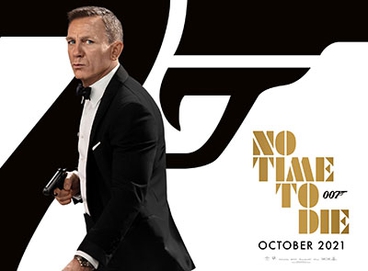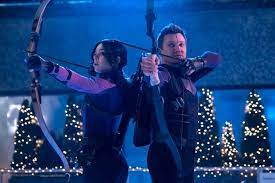Why I Am Beyond Fond of the Latest Bond Entry
Peerawut Ruangsawasdi
Staff Writer
No Time to Die found its time to shine in October after being delayed twice, first due to the departure of Danny Boyle as director; and then because of COVID-19. The last in the Craig Bond story arc, No Time to Die beautifully concludes Daniel Craig’s run as the iconic British spy.
Following the events of Spectre, former MI6 agent James Bond (Daniel Craig) spends time with Dr. Madeleine Swann (Léa Seydoux) in Italy. Unfortunately for Bond and his lover, Bond is ambushed by Spectre assassins while visiting Vesper Lynd’s grave. Despite Madeleine’s assurance of loyalty, Bond believes she has betrayed him due to her past connections with Spectre and leaves her. Five years later, Bond goes on vacation in Jamaica, where he is contacted by CIA agent and compadre Felix Leiter (Jeffrey Wright) and is asked to help find Valdo Obruchev, a former MI6 scientist who was captured by Spectre. While at MI6, Obruchev was authorized by M (Ralph Fiennes) to work on a bioweapon of nanobots that can specifically target people to infect and kill them. Unbeknownst to Spectre and Bond, Lyutsifer Safin (Rami Malek), an old enemy of Mr. White, and Spectre, are plotting against them and desire to acquire the bioweapon for himself.
The film deals with Bond’s most personal issues: Madeleine, Vesper, Spectre, and Mr. White, each in more meaningful ways than one. No Time to Die satisfyingly ties up all loose ends of the Craig Bond era, and puts Bond in an incredibly tough and sensitive situation. What ensues is an emotional journey for Bond and viewers alike. Craig’s acting, once again, does not disappoint. Emotional and sensitive, yet cold-blooded when necessary, Craig provides a stellar performance through and through. The next actor to take up the code 007 will have very big shoes to fill.
Much like many Bond films, the stakes are as high as ever, with two groups of bad guys fighting to gain a bioweapon that can slaughter millions of people. But the spotlight is on Safin. For the sake of avoiding spoilers, Safin’s personal vendetta against Bond and Spectre is exceptional and powerful. His goal of mass human genocide, while less believable, is still enjoyable. Fortunately, No Time to Die learns from its immediate predecessor and utilizes its villain to the utmost extent. We get to see a lot of Malek’s incredible performance of Safin, who won an Oscar for his performance as the iconic British singer Freddie Mercury in Bohemian Rhapsody.
If No Time to Die gives us an adequate amount of screentime to its main villain, the same could be said for its supporting cast. Much to my enjoyment, M, Q, Tanner, Moneypenny, Leiter, and Blofeld all returned to the film, and all meaningfully contribute to the story. The role that the supporting cast plays is where the Craig Bond era excels. In addition to its returning cast, No Time to Die introduces a couple strong and interesting characters, both female: Paloma, a highly-skilled CIA agent (Ana de Armas) and Nomi, another 00 agent (Lashana Lynch).
While not as innovative as Casino Royale or Skyfall, Cary Joji Fukanaga’s vision and execution for No Time to Die created a satisfying conclusion to the franchise, and fits in nicely with Sam Mendes’ soft reboot that began with Skyfall. It is a balanced mix of fan service, common Bond tropes, and a great emotional story. Proving its aim to please old-time fans, No Time to Die opens with a Dr. No-esque title sequence. This and Bond’s vacation to Jamaica serve as nice call-backs to the classic first Bond film. The film also serves as a tribute to On Her Majesty’s Secret Service in various moments. And, before you ask, yes, this film has a gun barrel sequence.
What disappointed me, however, was the mediocrity of the theme by Billie Eilish. While a decent song in its own right, it is largely forgettable compared to previous Bond themes, and, at times, inaudible. The only positive thing I can say about it is that it has a couple of enjoyable moments, such as the hook. It is okay, but it is certainly not Adele’s Skyfall or Nancy Sinatra’s You Only Live Twice. Much better was the end credits song by Louis Armstrong, which I will not name for the sake of avoiding potential spoilers. In terms of music, however, there is another spot where No Time to Die really shines: the score by Hans Zimmer. Zimmer provides us with one of his best works since The Dark Knight. The score is emotional, impactful, and rightly serves to amplify emotional moments throughout the film, whether that would be suspenseful or touching.
If you like James Bond at all, find time to see No Time to Die. If you are a fan of action films and just good films in general, No Time to Die will not disappoint. With its action-packed sequences and a powerful plot, No Time to Die once again reaffirms itself as a fitting conclusion to Craig’s run as Bond.
8.5 out of 10 points, well-shaken but not stirred.
Universal Pictures photo





